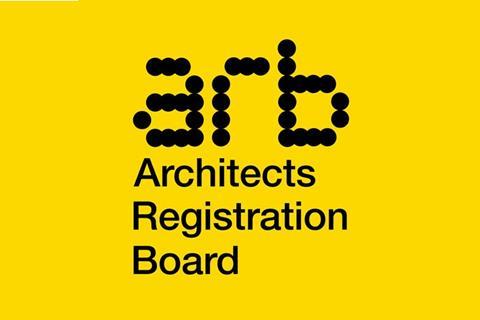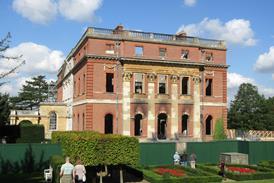Nic Antony was referred to regulator after being dismissed by client on private home development
An Essex-based architect with projects across the South-east of England has been handed a two-year suspension by the Arb for unacceptable professional conduct.
Nic Antony, director of RIBA chartered practice Nic Antony Architects, will not be permitted to use the title of architect for 24 months after he was found to have supplied “misleading” documentation to the regulator.
The practice employs around six people and has offices in Essex and the London Docklands. Largely focused on upmarket private housing extensions, it has also worked on larger schemes including a newbuild block of flats in Mile End, London.

The two-year suspension is the maximum duration given by ARB, which said Antony had only “narrowly avoided” erasure from the professional register.
Antony was referred to the regulator in September 2022 after being dismissed by a client who had appointed him to draw up proposals for a development at her home address.
The work resulted in a planning application to the local council submitted in October 2021 which was rejected because it did not include a sustainability checklist.
A second pre-planning application submitted in February 2022, which included the sustainability checklist, was then also rejected when it was found to have “not sufficiently dealt with” a local policy to preserve bungalows.
According to the Arb, the client later “lost faith” with Antony and requested a full refund in August 2022 on the basis that his applications were “not fit for submission”, and made a complaint to the regulator the following month.
Antony was asked to provide copies of the applications as part of the subsequent Arb investigation. These documents were found to contain “discrepancies”, with the sustainability checklist included in the initial application and changes to drawings and supporting documents in the second application.
Lawyers at Kingsley Napley, acting on behalf of Arb, are said to have become suspicious that Antony had “tampered with the documentation to provide a more favourable impression as to the quality of the applications”.
This was followed by a telephone call made by Antony in January 2024 to a roofing contractor who had been working on the former client’s address. As part of the civil claim against Antony, the client had included the full cost of repairing the roof of her home.
During the call, Antony was alleged to have claimed he was still working on the client’s property and was in the process of preparing drawings. The roofing contractor is said to have become suspicious when Antony allegedly asked for a copy of the invoice for the roofing works.
During the Arb investigation, Antony had denied asking for the invoice as he claimed he already had a copy supplied by the client. However, he altered his witness statement following the emergence of an email sent by Antony to the roofing contractor requesting the invoice.
When it was suggested during cross-examination that Antony had amended his statement after realising he would be “caught out in a lie”, Antony claimed his original assertion had been a mistake. The Arb said it had given Antony the benefit of the doubt.
The investigation found Antony had been dishonest during the phone call and had “relied upon his status as an architect” to elicit the invoice, despite likely being entitled to the invoice in any event through legitimate avenues as part of the client’s civil claim.
Arb said: “Of concern to the [Professional Conduct] Committee is that he would resort to untruthfulness so casually for such inconsequential purposes. Either this is evidence of poor thinking skills or a casual relationship with the truth.”
The Committee added that “there appears to be a pattern of a casual approach to preparing important documents that require his careful attention”.
Describing Antony’s conduct as a “serious offence”, the Committee said it had opted for the maximum suspension term despite considering erasure from the register on the grounds of “entrenched integrity issues”.
The ruling added that Antony “will need to adjust his working practice to adapt to the restrictions that this Order will have upon him and his company.
“This will allow him time to reflect and recognise the importance of acting with integrity in all aspects of his practice before he can return to the Register.”
Antony has been approached for comment.
















No comments yet